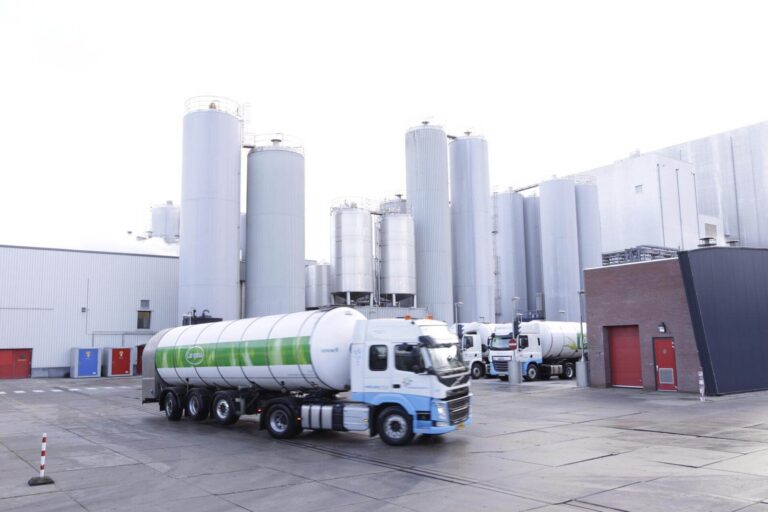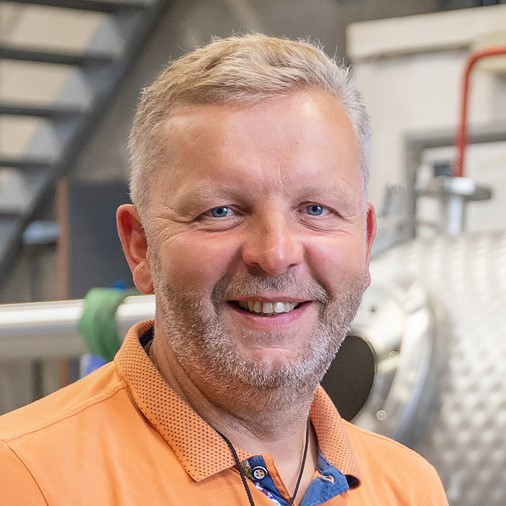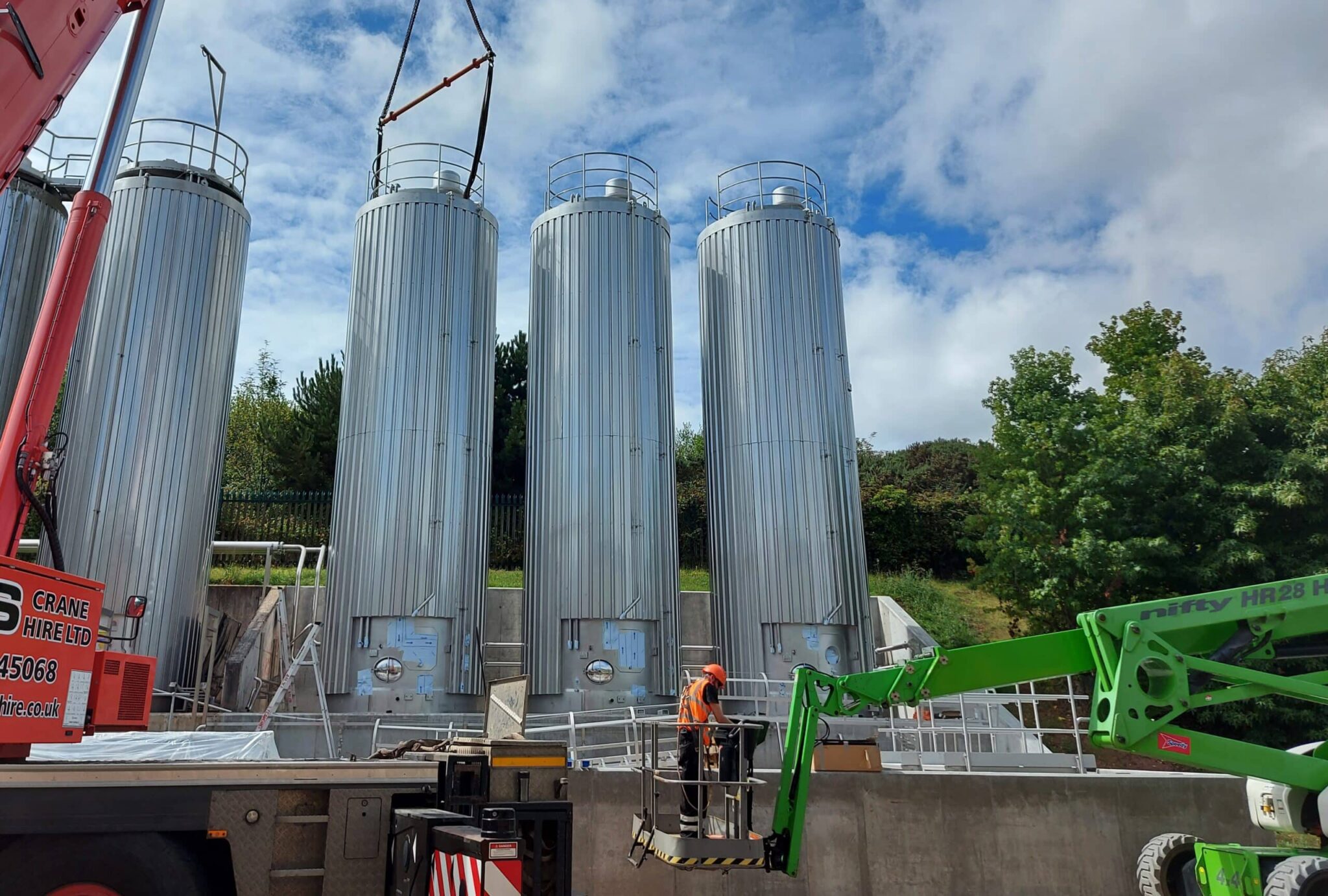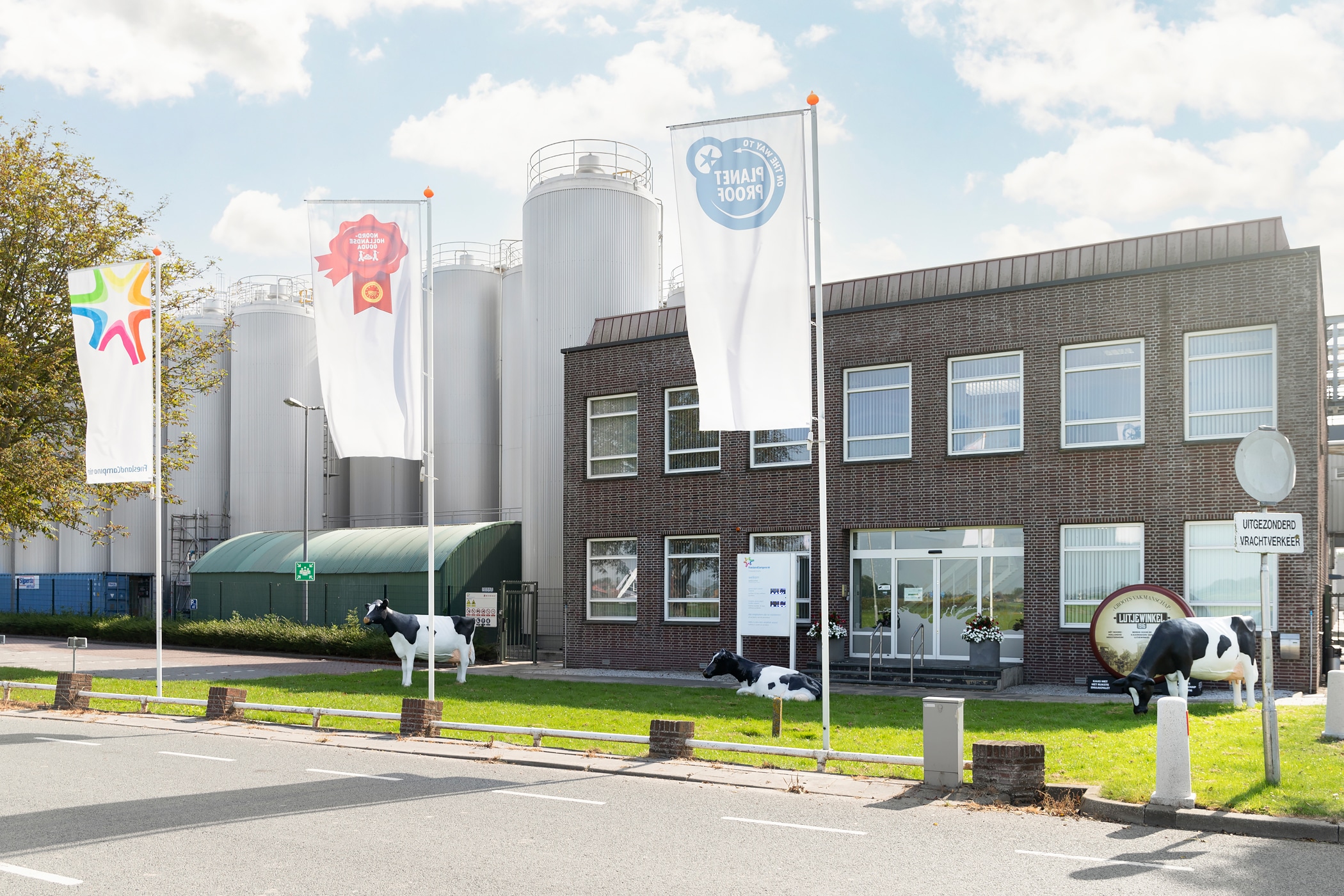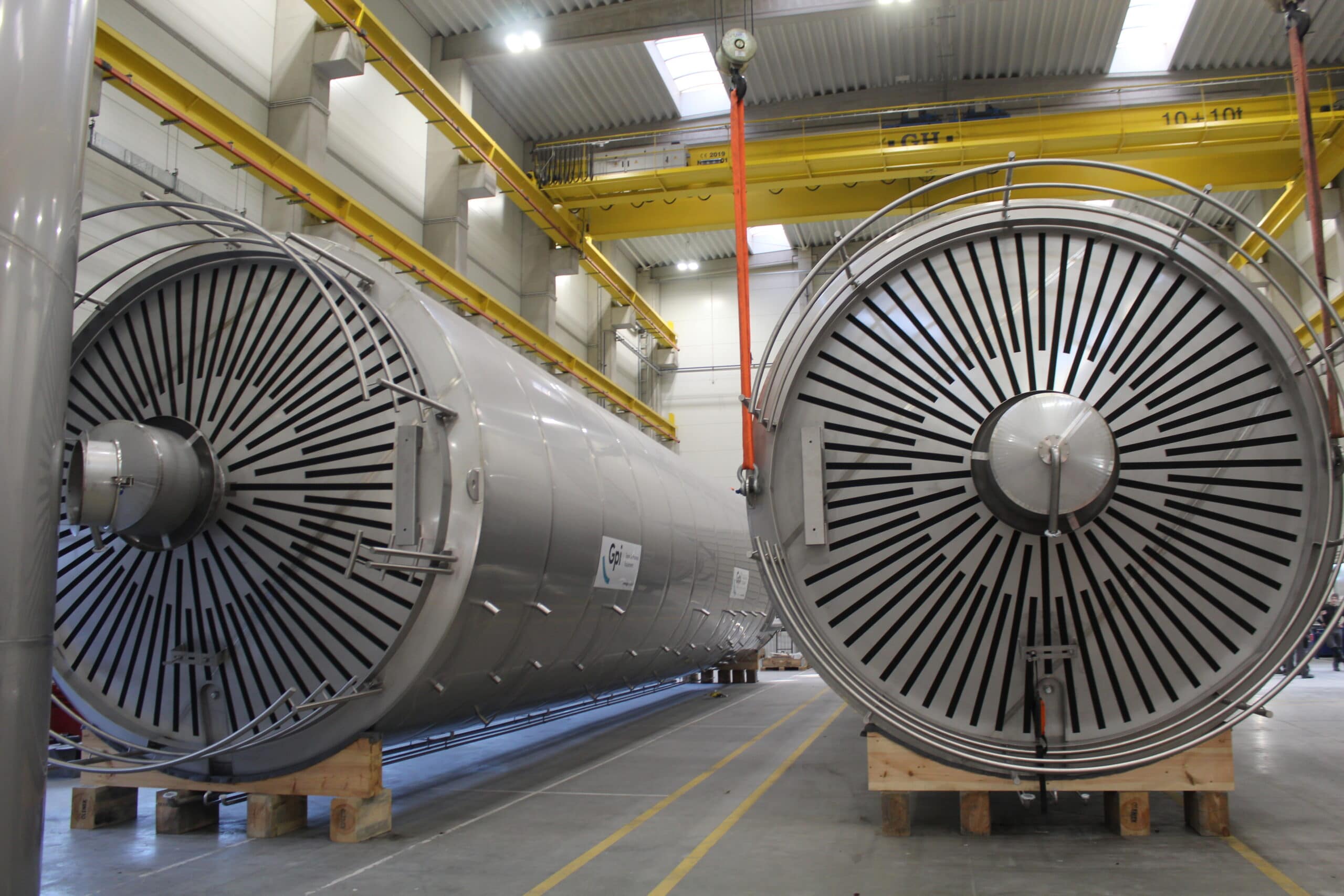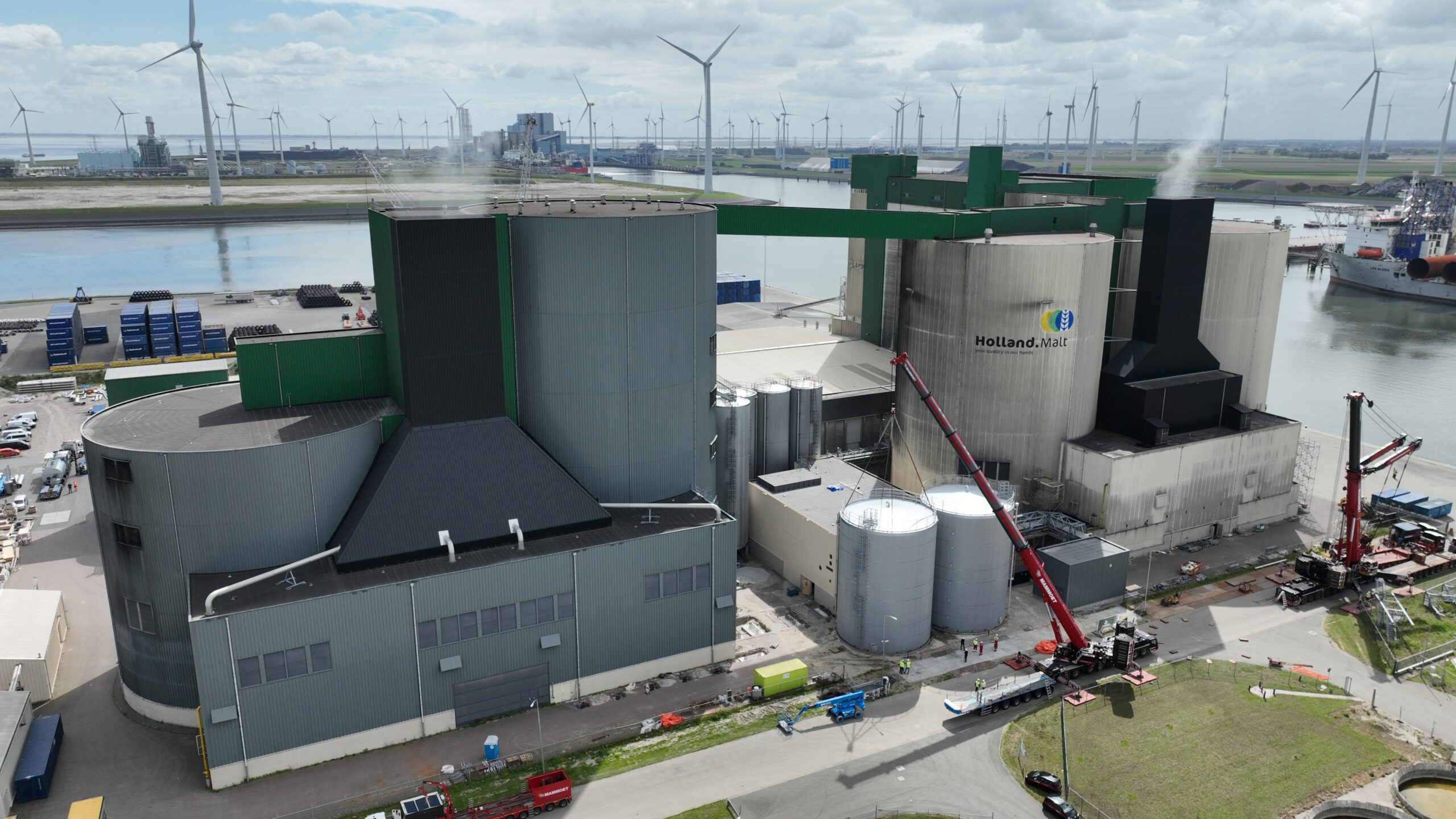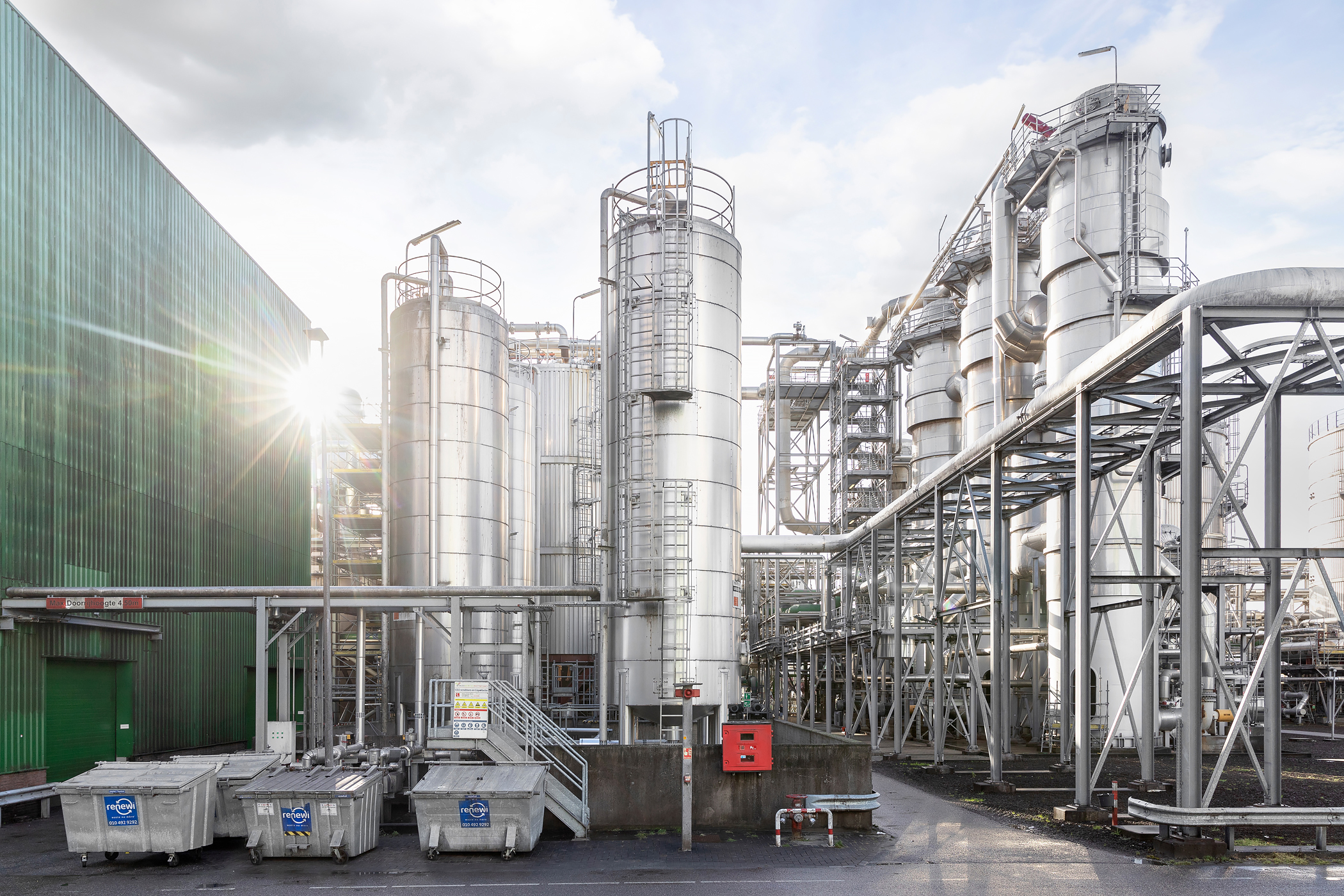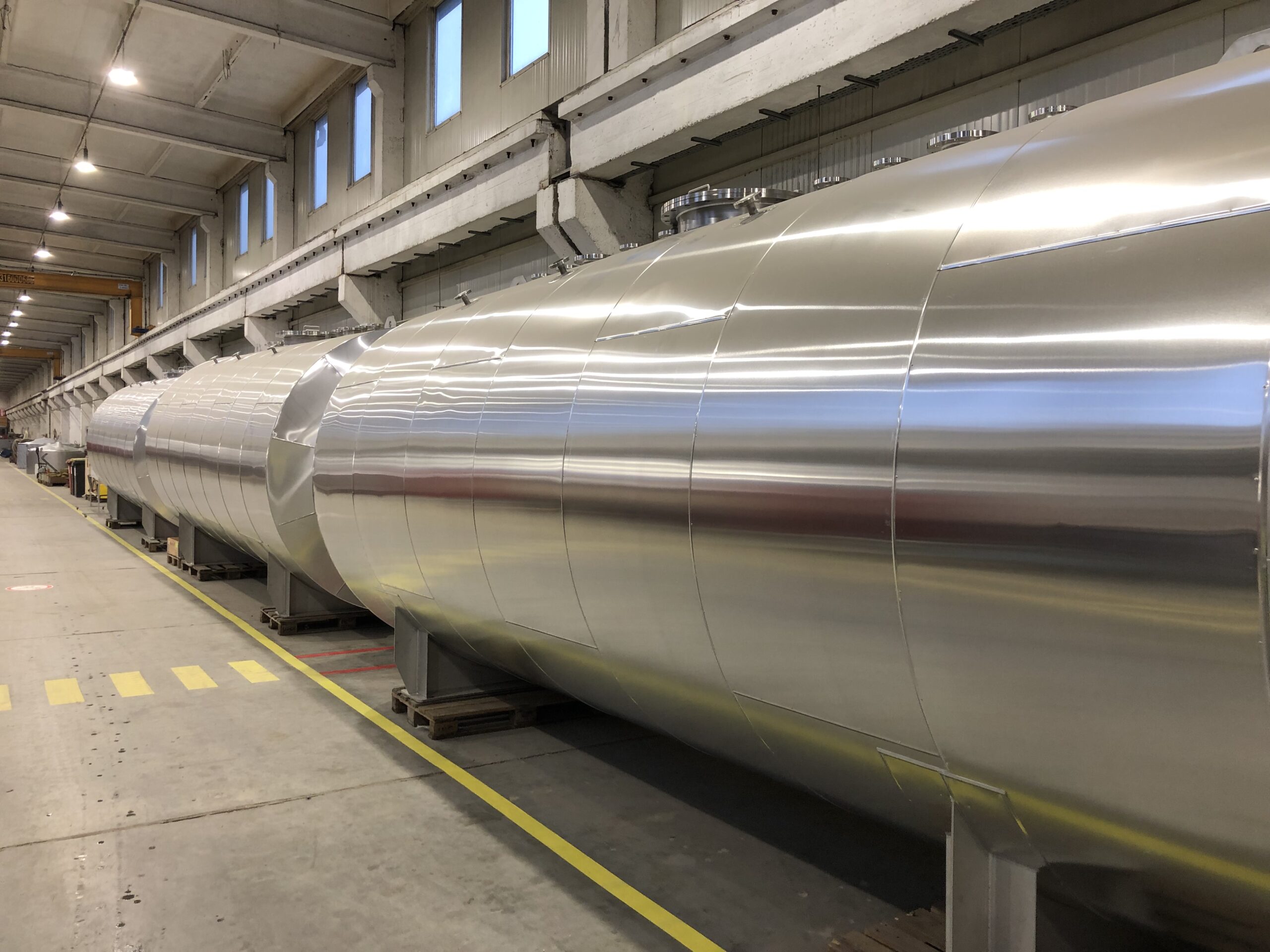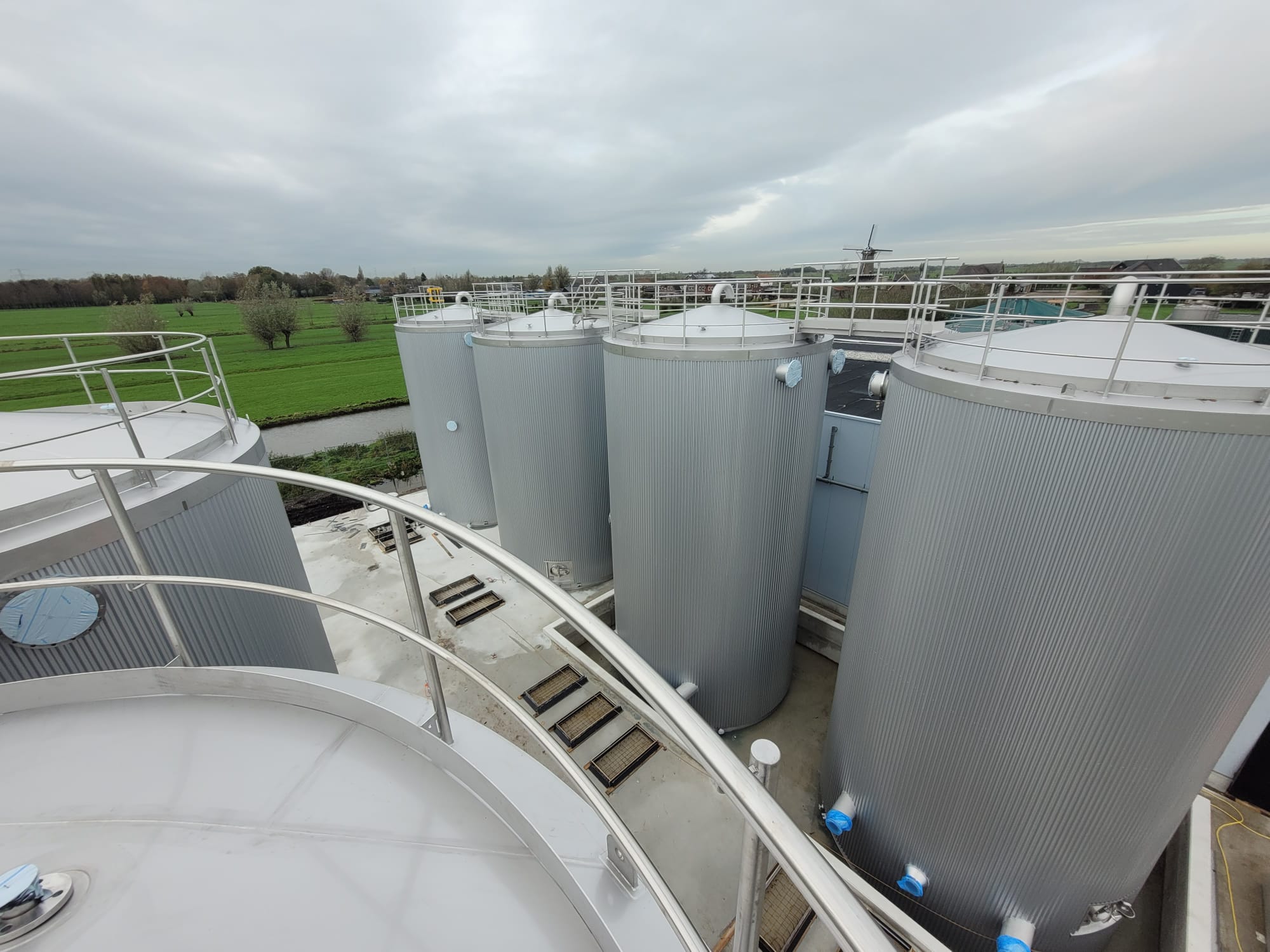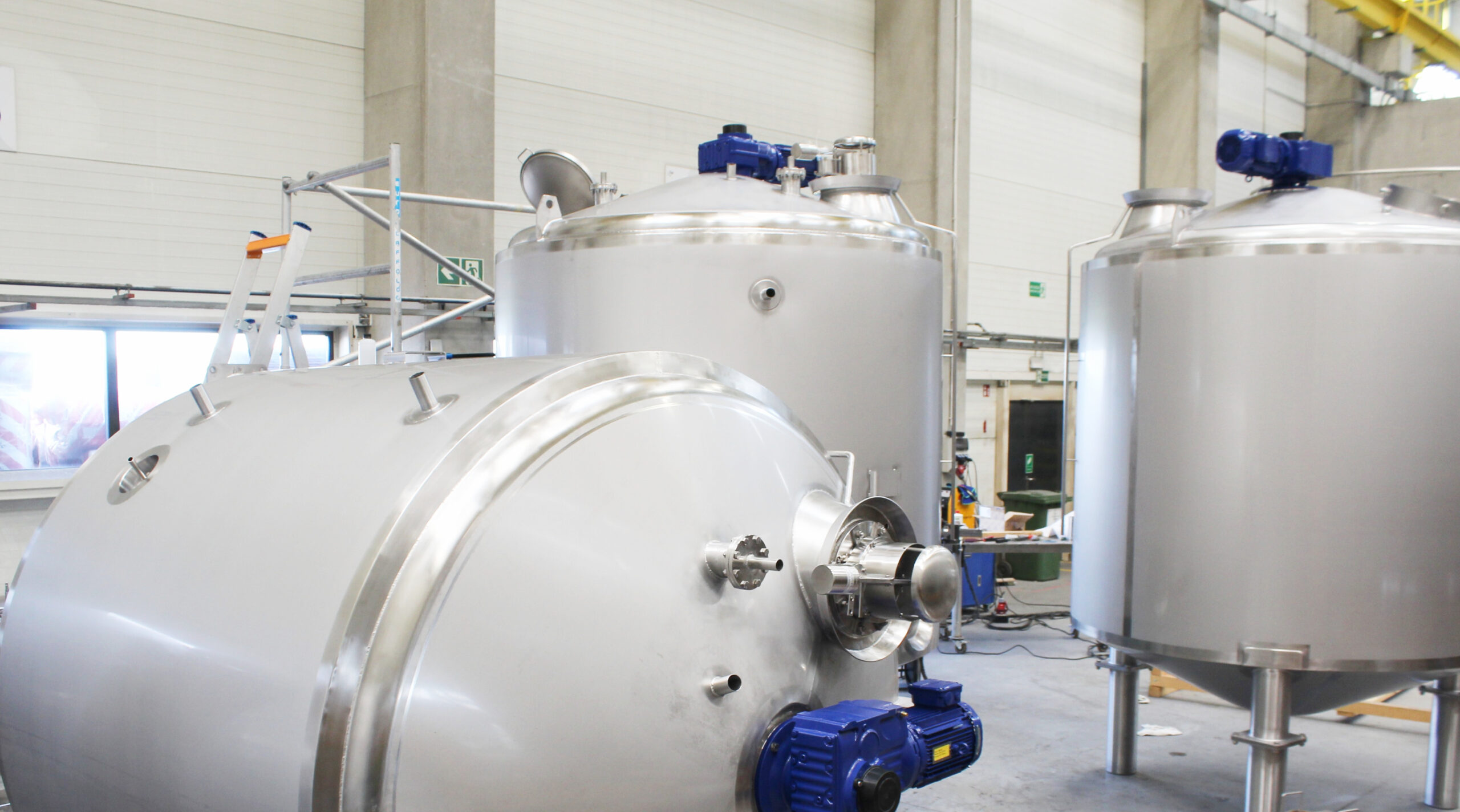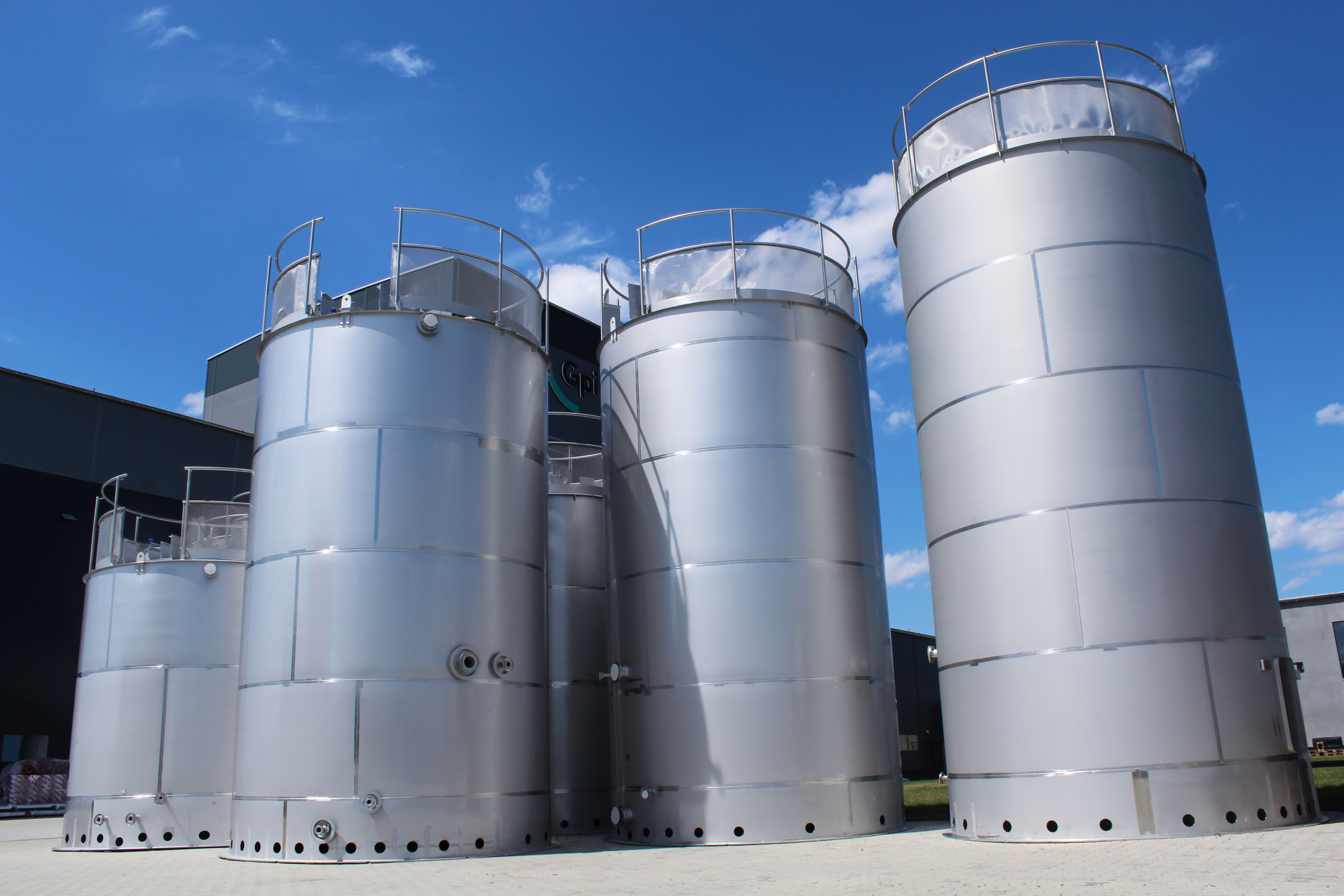High-Quality Stainless Steel Milk Cooling Tanks for Dairy Farms
Cream Tank / Milk Cooling Tank / Yoghurt Tank
Over the past 30 years, Gpi has manufactured tanks and process equipment for virtually all major dairy companies around the world. These include raw milk tanks, cream processing tanks, whey tanks, yoghurt tanks and other fermentation tanks.
Tanks for Dairy Products
Dairy tanks are mainly process tanks where cream or yoghurt is produced. These tanks usually have a conical or flat bottom, are cooled by means of a pillow plate, and are half-pipe and fully insulated.
If the tanks are placed indoors, they are built with a welded shell. On the outside, insulation is applied in the form of sealed aluminium walls.
Specific agitators are fitted to the tanks to ensure light mixing of the product.
The right combination of components is key to achieving more efficient production and eliminating side effects such as foaming.
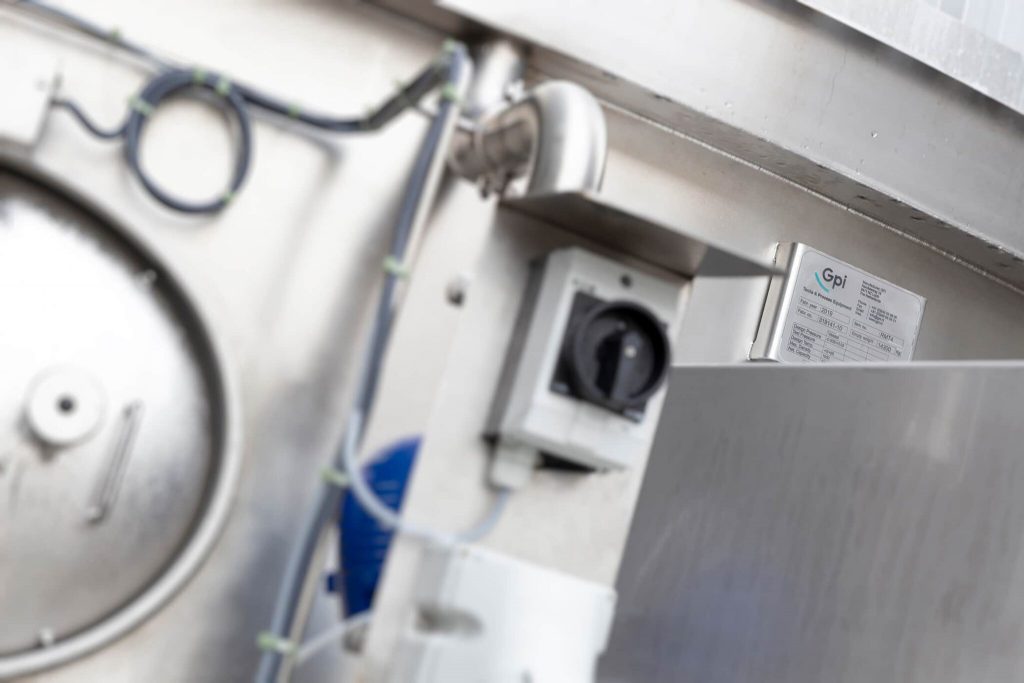
Do you have any questions about our dairy tanks?
Selected options for milk product tanks:
- Tank insulation
- Additional elements like platforms, ladders, railings
- CIP connections
- Heating and cooling system (we recommend pillow plate)
- Incorporated agitator
- Standard tank roughness Ra 0.8 µm
- Any capacity
- Material 304 (L), 316 (L), duplex depending on customer requirements
CIP Systems and Tank Insulation
All stainless steel tank components for the dairy industry are designed with attention to detail and engineering accuracy to ensure high hygiene. This is an important aspect when storing products for consumption.
Tanks for yoghurt, kefir, milk or whey are insulated with mineral wool, usually 120 mm thick, which is protected against moisture (as it does not contain chlorides).
The next stage is the installation of trapezoidal sheet metal as protection for the entire tank. Insulation is important as it minimises heat loss and maintains the product temperature at the right level, which is very important in the case of dairy products.
CIP (cleaning-in-place) connections are also fitted to this type of tank, allowing automatic cleaning without the need to dismantle other components.
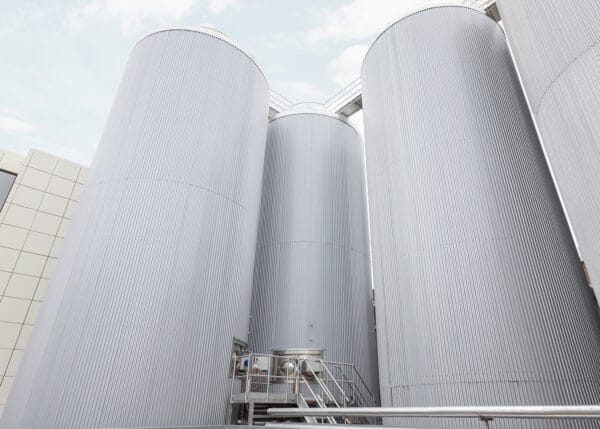
Tank Tests for the Dairy Industry
The necessary tests are carried out at Gpi for process and storage tanks for dairy products.
One of these is the riboflavin test, by which the effectiveness of the product leaching from tank walls, manholes, bottoms, connections or cleaning heads is checked.
Problem areas are identified using a UV lamp and riboflavin liquid. Additional sensors monitor critical parameters related to temperature and pressure measurement and indicate low or high levels of substances in the tank.
An essential test carried out by the quality control department, in the case of tanks for milk and milk derivatives, is a visual check of the EN ISO 17637 and EN ISO 5817 welds, the size of which has a significant impact on the strength of the tank.
The next stage is a dimensional and visual test, which consists of measuring and conforming the manufactured tank to the technical drawing.
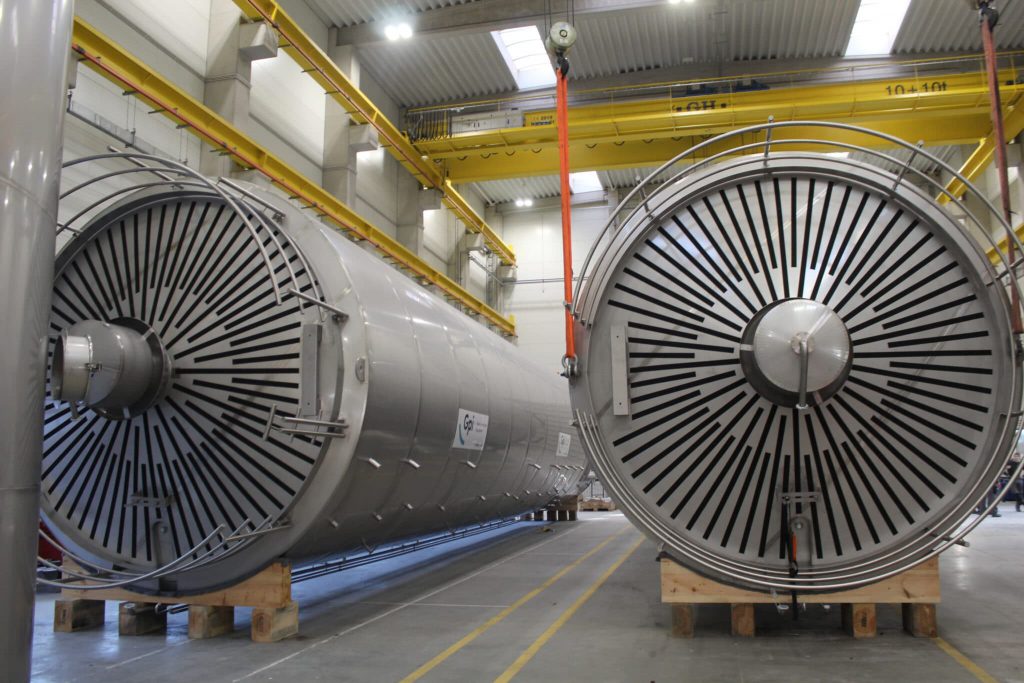
Mixer Tests
At Gpi, we also carry out short-term tests of the agitator, which consist of observing whether there are any abrasions against other tank elements.
We recommend magnetic mixers that meet the requirements of EHEDG (European Hygienic Engineering & Design Group) and are the best solution for the non-contact mixing of liquids.

Safe Production of Yoghurt, Cream, Cheese
When it comes to food storage, especially dairy-related storage, the type of tank material is crucial.
At Gpi, we use stainless steel, which is regarded as one of the safest materials for food storage according to European Union regulations. Stainless steel and its products do not affect the organoleptic properties of the product, i.e. change its chemical or physical composition.
European and international standards, such as EN 10312, NSF/ANSI Document 61 (Standard for contact with drinking water), EHEDG, and Regulation (EC) 1935/2004, strictly define the acceptability of materials in contact with food.
